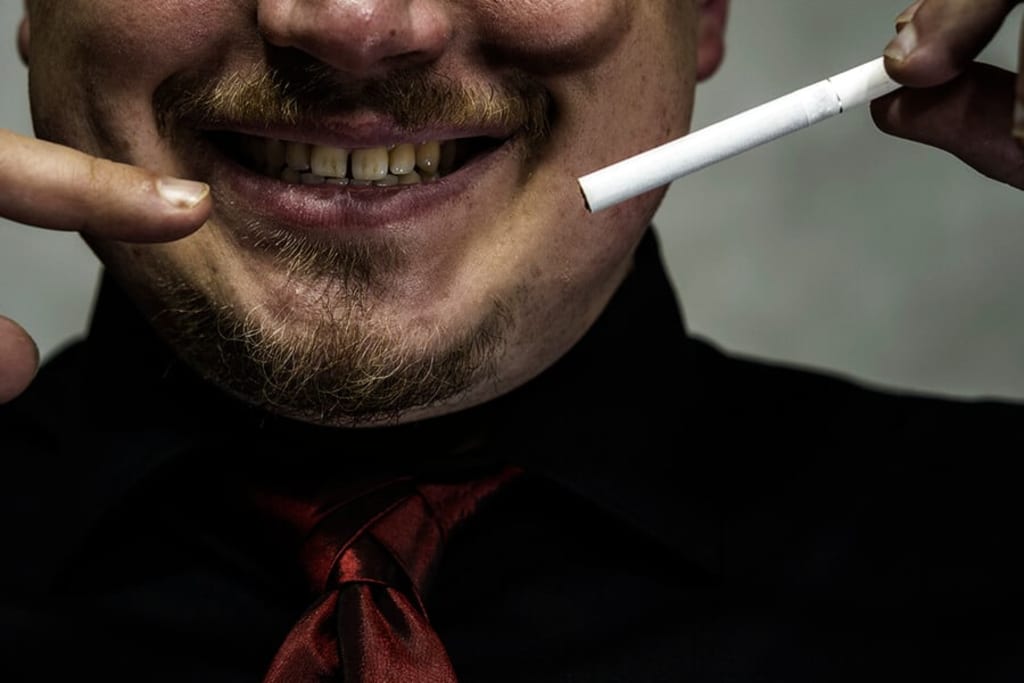7 Destructive Ways Smoking Affects Your Teeth
3 Things That Happen When You Quit Smoking

It’s true that proper dental health is maintained by flossing, a healthy diet, brushing, and visiting your dentist regularly. However, these things can’t fight the harmful effects of smoking. The only thing that can save your teeth is quitting smoking.
3 Things That Happen When You Quit Smoking
1. Depression and Anxiety
People who smoke are more likely to have depression than non-smokers. Nicotine attaches to several receptors in the brain that release dopamine. When you quit smoking, your dopamine levels decrease which makes you feel sad, anxious, and irritable.
2. Weight Gain
The nicotine in cigarettes provokes sugar release in your blood. When you quit smoking, you’ll have a drop in blood glucose which can cause sugar cravings. People often replace cigarettes with food. If you also experience sugar cravings try to choose a healthy snack like carrots, nuts, or apples in order to avoid weight gain and blood sugar problems.
3. Nicotine Cravings
Nicotine cravings can be irregular or they can be provoked by seeing other people smoking or smelling smoke. Nicotine cravings from these triggers last approximately 15-20 minutes long. It can be very helpful if you can find something to calm your mind during this time.
How Does Smoking Affect Your Teeth?
1. Increases the Risk of Oral Cancer
Over 70,000 chemicals make up tobacco smoke. 7,000 of these chemicals are known carcinogens.
75 to 90% of people who have been diagnosed with oral cancer have been tobacco users.
In a study done by the American Cancer Society, male cigarette smokers had 28 times the risk of developing oral cancer than males who have never smoked. Women smokers had 6 times the chance of developing oral cancer than women who do not smoke.
It has been established that there is a direct causal relationship between cigarette smoking and oral cancer.
If you experience such symptoms as mouth pain, mouth sores that do not heal, difficulty moving the jaw or tongue, weight loss, persistent bad breath, difficulty moving the jaw or tongue, a white or red patch on the gums or tongue, contact your family dentist immediately.
2. Causes Tooth Decay
Cavities are often caused by such factors as a lack of proper oral hygiene and eating too much sugar. Interestingly, the presence of cavities can also be linked to smoking. According to studies, nicotine enhances the growth of the specific bacteria which provoke tooth decay.
3. Increases the Risk of Gum Disease
Smoking is one of the biggest risk factors for periodontal disease. This is a pathological inflammatory condition of the gum and periodontal tissues surrounding the teeth. In severe cases, this condition can eat away at the bone, leaving little support for your teeth and leading to tooth loss. What’s the connection between smoking and periodontal disease? The toxic chemicals in cigarettes weaken the body’s ability to fight infection which results in gum disease, bone destruction, and tooth loss.
4. Triggers Bad Breath
Sice smoking dries out the mouth, it can cause bad breath. Saliva washes away all dead cells and plaque that regularly accumulates on our teeth and gums. In addition, smoking also leads to gum disease.
5. Leads to Leukoplakia
Leukoplakia is also called “smoker’s keratosis”. This condition is characterized by multiple thick, white patches that form on the inside of the mouth. Leukoplakia can occur the borders of your tongue, gum, and inside your cheeks. Actually, tobacco is the most common cause of smoker’s keratosis and may indicate an early stage of oral cancer. Even after leukoplakia treatment, your risk of oral cancer still remains if you smoke.
6. Causes Tooth Discoloration
Tooth discoloration is caused by intrinsic or extrinsic stains. Dentin usually becomes yellow due to intrinsic stains which can be caused by trauma to the teeth in childhood, excess of fluoride or taking some antibiotics. The outer structure of the tooth gets discolored due to extrinsic stains which are usually caused by regular coffee or wine consumption. Smoking provokes both types of stains which can damage and weaken your teeth.
7. Increases the Risk of Unsuccessful Dental Procedures
Due to the fact that smoking can lead to periodontal disease, tooth discoloration, and multiple cavities, you may require certain dental treatments. Teeth whitening and dental implantation can be unsuccessful. For this reason, some dentists will not even install an implant unless you commit to quitting smoking.
About the Creator
Amelia Grant
I am journalist, and blogger.






Comments
There are no comments for this story
Be the first to respond and start the conversation.